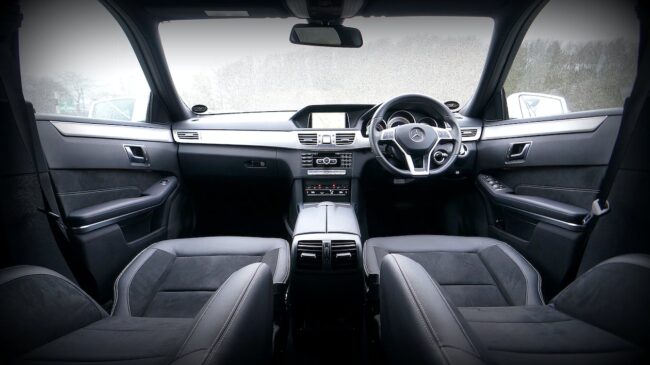
Is 200 thousand miles bad for a car? As a small business owner or self-employed individual, tracking your expenses and deductions is essential to optimize your tax savings. One common area where you have the flexibility to choose your method of deduction is with business-related vehicle expenses. Generally, there are two options to choose from: mileage deduction or actual expenses. In this article, we will explore the differences between the two methods and discuss when you can switch from one to the other.
Understanding Mileage Deduction and Actual Expenses
Before we delve into the switch between these methods, let’s understand what each entails:
Mileage Deduction
Is 200 thousand miles bad for a car? The mileage deduction is a simplified method that allows you to deduct a standard mileage rate for every business mile you drive during the tax year. The IRS sets this rate annually, and it typically includes factors like fuel costs, maintenance, and depreciation. For 2022, the standard mileage rate is 58.5 cents per mile. To use this method, you must keep a detailed record of your business miles.
Actual Expenses
On the other hand, the actual expenses method involves deducting the actual costs associated with using your vehicle for business purposes. These expenses may include:
- Gasoline and oil
- Maintenance and repairs
- Insurance
- Registration fees
- Depreciation
- Lease payments (if applicable)
Using the actual expenses method requires diligent record-keeping of all your vehicle-related receipts and expenses throughout the year.

Factors to Consider When Switching Methods
Switching from mileage deduction to actual expenses or vice versa is not something you can do on a whim. The IRS has specific rules regarding when and how you can make this change. Here are some factors to consider before making the switch:
Yearly Election
The IRS requires you to choose a deduction method at the beginning of the year, and you are generally locked into that method for the entire tax year. However, there are exceptions:
First Year of Vehicle Use: If this is the first year you are using your vehicle for business purposes, you have the flexibility to choose either method.
Leased Vehicles: If you are using a leased vehicle for business, you have the option to switch between mileage and actual expenses each year.
Substantial Changes in Business Use
If you have experienced significant changes in your business use of the vehicle during the year, the IRS may allow you to switch methods. For example:
Significant Mileage Increase: If your business mileage has substantially increased due to a change in business operations, you might consider switching to the actual expenses method to capture a higher deduction.
New Business Activities: If your business has expanded to include new activities that require different types of expenses (e.g., increased repairs due to off-road usage), switching to actual expenses might be more advantageous.
Keeping Accurate Records
Whichever method you choose, meticulous record-keeping is crucial. However, it becomes even more critical if you plan to switch to the actual expenses method. The IRS may request documentation to support your claimed deductions, so having well-organized records is essential.
The Process of Switching Methods
If you’ve determined that switching methods is the right decision for your business, here’s how you can do it:
Consult with a Tax Professional
Is 200 thousand miles bad for a car? Before making any changes, it is wise to consult with a qualified tax professional who can assess your specific situation and guide you through the process. They can help you evaluate the potential tax implications and ensure you meet all IRS requirements.
Notify the IRS
If you are eligible to switch methods, you must notify the IRS. Include a statement with your tax return explaining that you are changing from the mileage deduction method to actual expenses, or vice versa, for the current tax year.
Maintain Consistency
Once you’ve made the switch, it is generally expected that you continue using the same method for subsequent years unless you encounter significant changes in your business use.
Weighing the Pros and Cons
Both mileage deduction and actual expenses have their advantages and disadvantages. Consider the following factors before making a decision:
Mileage Deduction:
Simplicity: It involves less record-keeping and is generally easier to calculate.
Standard Rate: The IRS standard mileage rate already accounts for various vehicle expenses.
Limited Deductions: It may not cover all actual expenses, potentially leading to lower deductions.
Actual Expenses:
Accuracy: You can deduct all actual vehicle-related expenses, ensuring a more accurate representation of your costs.
Higher Deductions: If you have significant expenses related to your business vehicle, this method could lead to larger deductions.
Complexity: The actual expenses method requires meticulous record-keeping and can be more time-consuming.

What are the proper procedures for updating the mileage on a car legally?
The Super Kilometer Filter offers a unique kilometer stopper that distinguishes itself from other correction tools due to its unmatched convenience and reliability. This plug-and-play device is ingeniously designed to eliminate the need for soldering or cable cutting, allowing for a seamless restoration to the original state when it is no longer required. Additionally, the filter efficiently screens out mileage data and prevents any additional information from being transmitted to other control units, making it untraceable. At Super Kilometer Filter, we assure the reliability of our product and guarantee that any modified data remains undetectable.
However, it is important to note that in most cases, altering or deceiving potential buyers about the mileage of a used vehicle is illegal. Therefore, while you may use this module to assess your vehicle’s performance in a controlled environment, it is essential to refrain from using it for deceptive purposes when selling your car. Compliance with the law and honesty with potential buyers should always be a priority.
Takeaway
Is 200 thousand miles bad for a car? As a business owner or self-employed individual, understanding your options for deducting vehicle expenses is crucial to maximize your tax savings. While the IRS generally requires you to choose a method at the beginning of the year, there are circumstances where switching from mileage to actual expenses or vice versa is permissible.
Before making any changes, consult with a tax professional to ensure that you are making the right decision for your specific situation. Whichever method you choose, remember to keep accurate records to support your deductions and remain consistent in your approach for subsequent years.
Latest Posts
- 1
- 2
Is Buying a Car with Over 100k Miles a Good Idea?
April 10, 2024 - 3
Why Are High Mileage Cars So Expensive? – A Guide
April 5, 2024 - 4
Where Is The Mileage Located In A Car?
April 3, 2024 - 5
Whats High Mileage in Vehicles?
March 29, 2024 - 6
What’s The Gas Mileage On A Smart Car: A Comprehensive Guide
March 27, 2024 - 7
At What Mileage Should You Sell Your Car?
March 22, 2024 - 8
Should You Buy a Car with Over 100k Miles?
March 20, 2024 - 9
Should You Buy a Car with 100k Miles?
March 15, 2024 - 10
Understanding ODO Meaning in a Car
March 13, 2024








